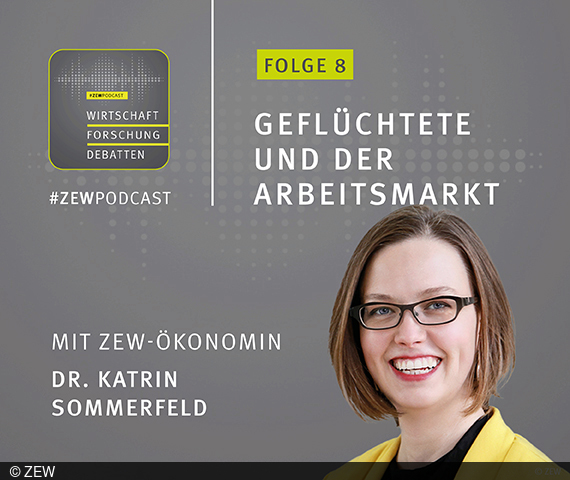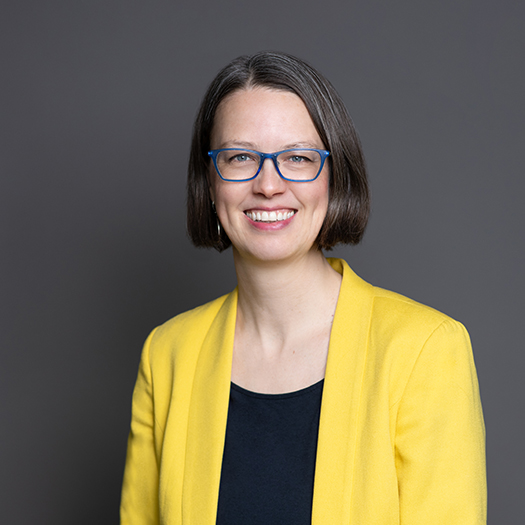Education and Prospect of Staying Remain Key to Labour Market Integration of Refugees
#ZEWPodcastZEW Economist Dr. Katrin Sommerfeld in #ZEWPodcast
2015 and 2016 are etched on people’s minds as the years characterised by the so-called ‘refugee crisis’. Over a million people fled war-torn countries and ultimately sought asylum in Germany. Dr. Katrin Sommerfeld discusses in the eighth edition of the #ZEWPodcast ‘Wirtschaft · Forschung · Debatten’/‘Economy · Research · Debates’ what the successful integration of refugees into the German labour market depends on, how successful this integration has already been since 2015, and what impact the coronavirus pandemic is having on the employment of refugees.
“Looking back on the years 2014 to 2016, we can indeed say that two-thirds of people who sought refuge in Germany have since received protected status,” recounts ZEW researcher Sommerfeld. However, some of them have only received so-called ‘subsidiary protection’. This form of status brings great uncertainty with regard to their right to remain and consequently negatively affects labour market integration. “Companies ultimately have to deal with the associated uncertainty,” says Sommerfeld, who is head of ZEW’s Junior Research Group ‘Integration of Migrants and Attitudes Towards the Welfare State (IMES)’.
Education is more important than direct employment
In addition to their prospects of staying, the education and German language skills of the refugees have played a central role for their employment opportunities. “German language skills are the key to integration,” explains the ZEW economist. Since three quarters of refugees were younger than 30 years old upon their arrival in Germany, it is still possible to adopt educational measures both in school education and in vocational education and training. “Chances remain high that investment in human capital will pay off in the long run. However, it is important that these investments are made at the beginning,” says Sommerfeld.
A direct uptake of employment upon arrival in Germany is not ideal, since education plays an important role. Rather, it may be worthwhile to invest in education first, which will later enable refugees to take up more suitable and productive employment in the labour market. According to ZEW economist Sommerfeld, this may also be the reason why the employment rate among refugees who arrived in Germany in 2015 is at 42 per cent, while a large proportion of the remaining 58 per cent are still seizing the opportunity of educational measures.
COVID-19 pandemic jeopardises labour market integration of refugees
The coronavirus crisis, however, poses a great danger for the refugees and their integration. On the one hand, refugees who are still living in shared accommodation are more exposed to the risk of getting infected with the virus. On the other hand, due to the lockdown and closure of educational establishments, it has only been possible to continue with integration measures such as language courses and voluntary support to a very limited extent. “There are also further aspects that particularly affect refugees on the labour market. They are often employed on a fixed-term basis, such as ‘mini jobs’ or part-time jobs, which ultimately means that they have lesser chances of profiting from the short-time work scheme – in which employees work reduced hours – or other supportive measures,” explains Sommerfeld. It can clearly be assumed that this will delay the further process of integration.

